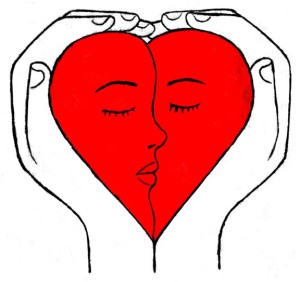I was fortunate to retire from my traditional work career at the relatively young age of 56. Retiring early had become a goal of mine ever since I observed how much my father enjoyed his 30 year post-work life. My father was perfectly content to leave the working life behind and fill up his days with fishing, tending his vegetable garden, solving the daily crossword puzzle, taking naps and watching the home town Sports teams on his television.
When the time came for me to retire, I had an idyllic vision of spending my days in similar fashion. Finally, after 56 years, I was looking forward to being my own boss – thrilled to have the opportunity to wake up every day and do whatever it was that interested me. I believed that every day would feel like Christmas!
And those first few months of retirement really were magical. Gone was the stress of having to be available 24/7 to my company’s sales and management teams who were battling to close million dollar deals, gone was the daily 3 to 4 hour commute in bumper-to-bumper traffic, and gone was the chronic sleep deficit.
It was goodbye to all that. What replaced it was the pleasure of deciding which book to read from my list of “books I always wanted to read“, fly fishing in the beautiful rivers of New England, taking long rides on my electric bike, spending quality time with my grandkids, and attending stimulating concerts and plays with my wife.
Something begin to happen, however, that I was not expecting about six months into my retirement. As the novelty and thrill of being retired began to subside I began to notice that I was experiencing melancholy moods and moments of soul searching. I was spending time reflecting on topics like past loss, the certainty of my physical and mental decline, and the uncertainty of how future generations will deal with the big existential challenges the world is facing.
Without the rigors of work to occupy my attention, my mind was set free to wander where it wanted to go and to my surprise I discovered that it often wanted to contemplate dark and doleful topics. I was not that concerned about these sometime melancholy moods because I reasoned that it is one of life’s natural reactions to harbor feelings of both happiness and sadness; and I remembered the wise old grandmother who once said: “A good day is a laugh and a cry“. Still I wondered why my pensive thoughts were increasing in frequency at a time in my life when I expected to be most content.
Then I happened to read about a study conducted by Harvard psychologists Matthew A. Killingsworth and Daniel Gilbert which could help to explain the phenomenon I was experiencing. These researchers developed a smartphone app that allowed them to collect the thoughts, feelings, and actions of a broad range of people at random moments as they went about their daily activities.
Using the app, Killingsworth and Gilbert asked people what they were doing and how happy they were while doing it. They sifted through 25,000 responses from more than 5000 people and reported that 46% of the people were thinking about things other than what they were actually doing at the time (in other words, they were daydreaming about something other than what they were doing). They discovered that those people who were daydreaming typically were not happy; while those who were fully engaged in their activity were the happiest.
The researchers wrote that unlike other animals, human beings spend a lot of time thinking about what is not going on around them, contemplating instead events that happened in the past, might happen in the future, or will never happen at all. This “stimulus-independent thought” or “mind wandering” appears to be the brain’s default mode of operation.
Although this ability is a remarkable evolutionary achievement that allows people to learn, reason, and plan, it apparently comes with an emotional cost. “We see evidence that a human mind is a wandering mind, and a wandering mind is an unhappy mind,” they said in their report. The bottom line is that we’re more likely to think negative thoughts when we let our minds wander.
Maybe that is why people who are waiting in line or stuck in traffic appear to be more irritable. And maybe my melancholy moods have increased in frequency since leaving work simply because my mind is no longer required to spend 10+ hours a day focused on the demands of my job.
This study confirms that many philosophical and religious traditions are on to something true when they teach that happiness is to be found by living in the moment, and by training their practitioners to resist mind wandering and concentrate on the here and now. Yoga teachers and those teaching meditation practices usually stress the importance of “mindfulness” or “being present” for a good reason — because when we do, it usually puts us in a better mood.
When I look back at my work career, I can see now that those moments when I felt most fulfilled was when I was in the middle of product development activities, being part of a team inventing electronic test solutions to solve complex manufacturing challenges. During those moments all the powers of my mind were fully engaged in solving the problem at hand and there was a sense that the results of the team’s collective work would have a positive impact on the company, our customers, and to a certain extent, society in general.
William F. Buckley put his finger on the unique ability that meaningful work has in preventing the onset of depressive feelings when he wrote “Industry is the enemy of Melancholy“. Simply put, if we are busy doing work that requires a focused mind it becomes difficult for the mind to wander and contemplate spirit dampening topics that are likely to cause the blues.
I happened to listen to an online homily about work that touched on a similar theme from a spiritual point of view that was given by Bishop Robert Barron. Bishop Barron made the point that our very being is deeply influenced by our actions and that the kind of work we do has a lot to do with the kind of people we become.
People who have no work usually struggle with depression because our sense of dignity often comes from work. Those who suffer from unemployment feel not just the financial burden of a lost paycheck, but also the loss of dignity brought about from the loss of their livelihood.
When you are feeling down one of the things psychologists recommend is to get to work on a project. It tends to make you feel better because work engages the powers of mind, will, creativity, and imagination and we become awakened when we give ourselves over to a project.
It doesn’t have to be a grand or complicated project. In fact, Bishop Barron mentioned that he found that one of the things that brings him the most satisfaction is doing the dishes. His day is usually filled with meetings and intellectual activities, so it is a relief for him to do some simple physical work at the end of the day. It brings him satisfaction to make order out of a dirty kitchen and to see everything clean and in its place when he is done.
The Bishop referenced this lyric from Bob Dylan’s song “Forever Young” to emphasize that work is a blessing and that souls can not fully prosper when their hands and feet are idle.
“May your hands always be busy, may your feet always be swift, may you have a strong foundation when the winds of changes shift”
Bob Dylan; Forever Young
Not all work is physical, though. Pope John Paul II categorized different kinds of work for the faithful. There is physical work (the work of the body), intellectual work (the work of the mind), spiritual work (the feeding of one’s soul), and moral work (charitable work on behalf of the poor and mistreated). When we are attentive to each of these categories of work in our daily life, it is then that we best fulfill our divine potential and become collaborators with the purpose of God.
I like that idea. May we all come to see our work, in all its different manifestations, as collaborating with the purpose of God and as bringing us into a more perfect union with a higher power.







